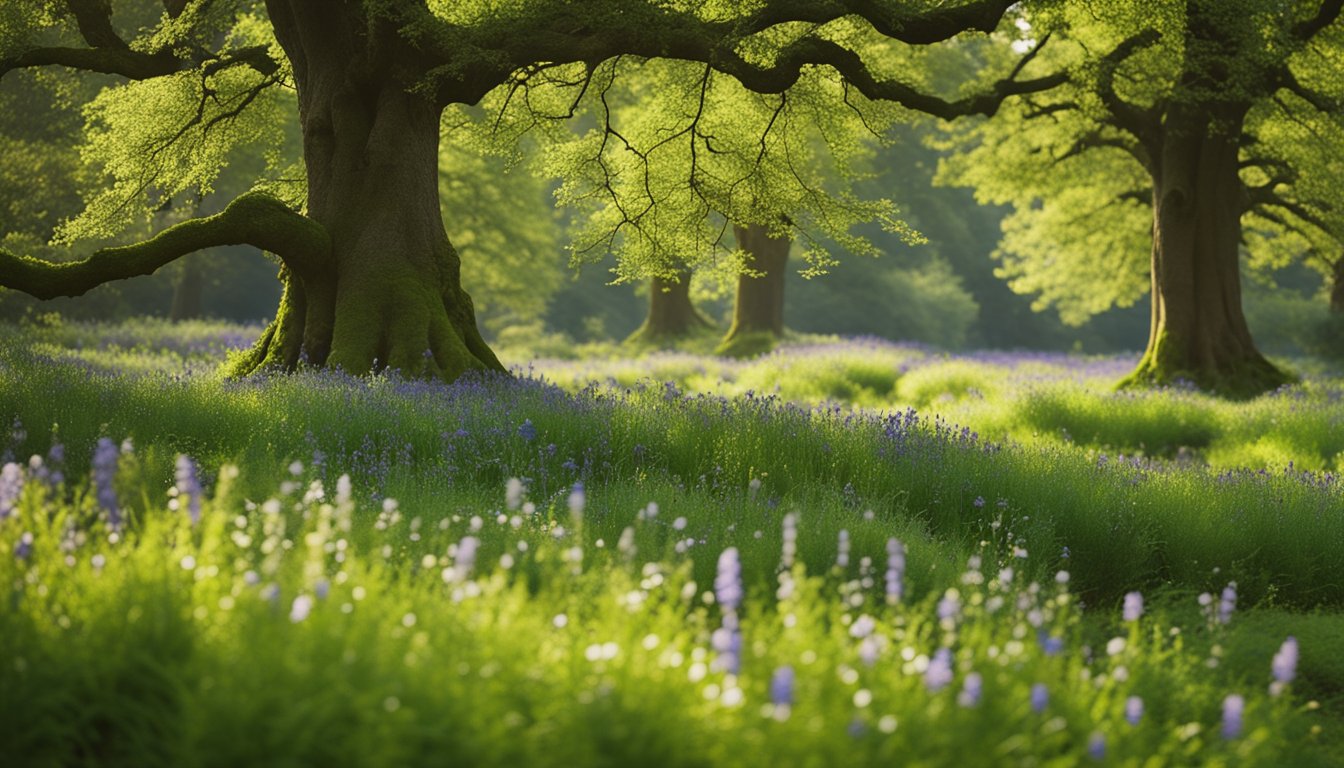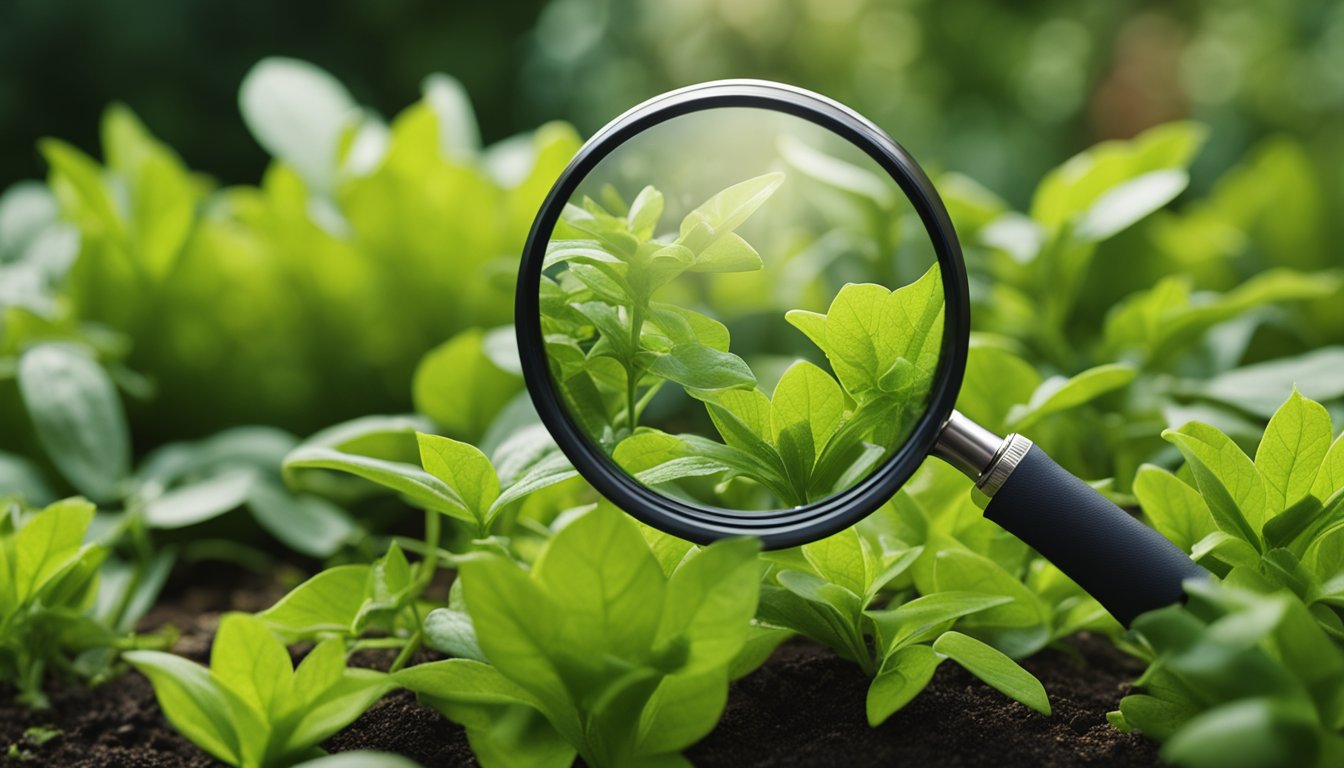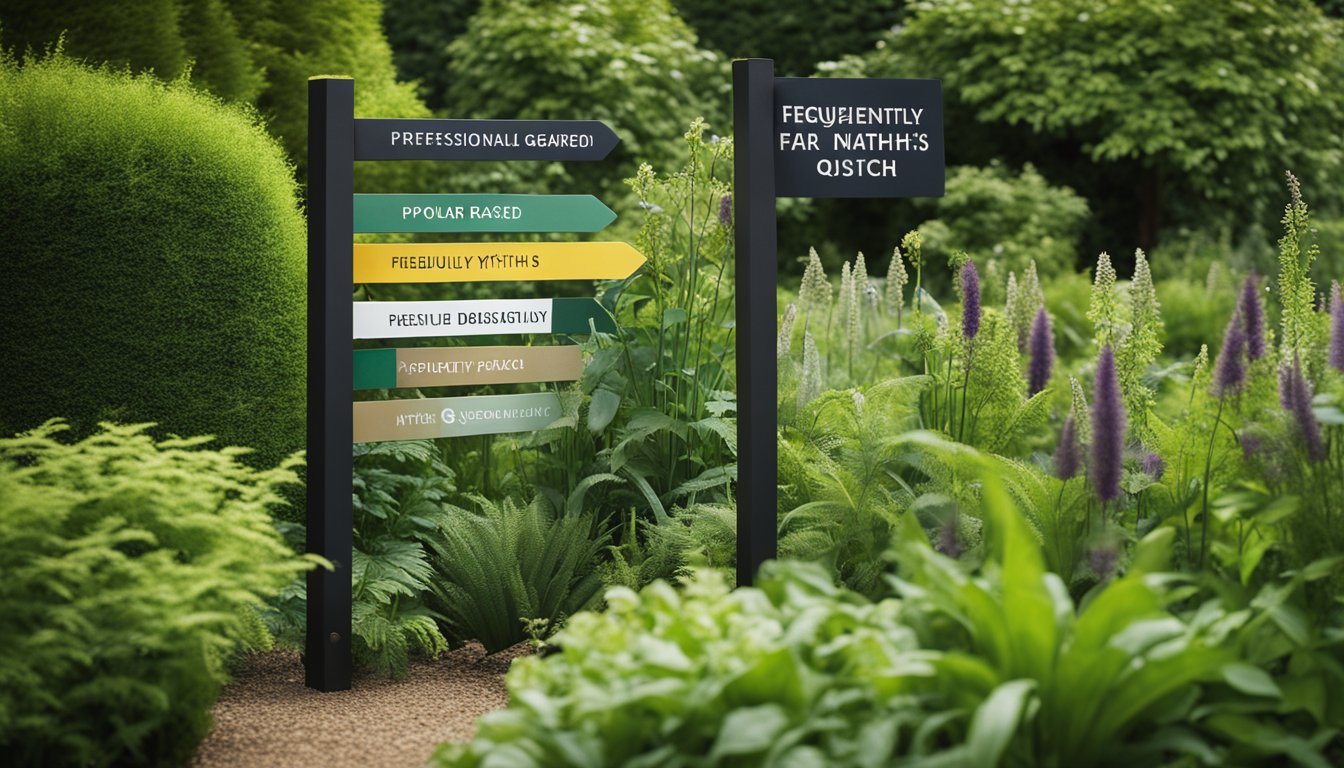Late updated: 31 Oct 2024 08:10
Written by: Emily Thornton
Popular Myths About Native UK Plants Debunked: Separating Fact from Fiction
Native UK plants have long been surrounded by a veil of misconceptions that often deters enthusiasts from exploring their full potential. Understanding and debunking these myths is key to fostering a deeper appreciation for native flora and their role in biodiversity. These plants are not only crucial for supporting local ecosystems but are also steeped in cultural and historical significance.

Many gardeners hesitate to incorporate UK native species into their landscapes, believing they require special care or are less visually appealing than non-native varieties. Yet, these myths couldn't be farther from the truth. Native plants offer unique beauty and countless environmental benefits, making them an excellent choice for sustainable gardening.
By tapping into our collective knowledge and dispelling outdated myths, we can reimagine our gardens as vibrant ecosystems. These spaces can thrive on native plants' resilience and ecological harmony, proving that nature's designs are often the most elegant and efficient.
Key Takeaways
- Native plant myths restrict biodiversity.
- UK native species combine beauty and historical significance.
- Addressing misconceptions enhances gardening practices.
Uncovering the Truth Behind Native Plant Myths

Native plants often face misconceptions regarding their usefulness and maintenance. By understanding the unique benefits native species bring to biodiversity, we can appreciate their role in our gardens and ecosystems. Myths such as invasiveness or high maintenance requirements are unfounded when native plants are used appropriately in local habitats.
Challenging the Invasiveness Myth
Many people mistakenly believe that native plants are inherently invasive. This myth stems from a misunderstanding of what invasiveness means. In reality, native species have evolved in harmony with their local ecosystems, contributing positively to biodiversity. They co-exist with pollinators and other flora, forming vital parts of their environments.
Non-native plants, on the other hand, can disrupt local ecosystems. When these species become dominant, they can outcompete indigenous plants, reducing biodiversity. Native wildflowers and other indigenous plants are typically well-behaved, integrating smoothly into local green spaces. By promoting native species, we help maintain the ecological balance and enrich local habitats.
Debunking Myths About Native Plant Maintenance
Another frequent misconception is that native plants require intensive maintenance. On the contrary, when planted in suitable environments, they thrive with minimal intervention. Native plants are well-adapted to local soil types, such as clay, and prevailing weather conditions. This natural resilience reduces the need for artificial drainage solutions and excessive watering.
When it comes to gardening, choosing native plants simplifies the process. We often find that local species are less susceptible to pests and diseases common in their native regions. As a result, they typically demand fewer chemical inputs. By embracing native plants, gardeners can enjoy beautiful and sustainable landscapes.
Correcting Misperceptions on Biodiversity and Native Flora
Native plants contribute significantly to local biodiversity, a fact often overlooked. They provide essential habitats and food sources for native species, including birds, insects, and other wildlife. This relationship supports the ecosystems' health, encouraging a balanced network of life.
The integration of native wildflowers in gardens promotes environmental stability. Native flora supports the life cycles of pollinators such as bees and butterflies, crucial for the reproduction of both wild and cultivated plants. It is essential to recognise the irreplaceable role these species play in maintaining robust ecosystems.
Our collective action in choosing native plants fosters biodiversity and supports local habitats.
Native Plants in Culture and History
Native plants of the UK hold a rich cultural heritage, woven into folklore and traditions. From artistic expressions to ancient myths, these plants have been central to both cultural narratives and seasonal celebrations.
Floral Symbols in UK Art and Storytelling
UK native wildflowers, like the cowslip and cornflower, have long featured in art and literature. These vibrant blooms often symbolise beauty and renewal.
Painters and poets have used native flora to evoke the natural beauty of the British Isles. In storytelling, the meanings attributed to these plants often reflect deeper societal values. Some tales celebrate the bounty and vibrancy of summer solstice, infusing stories with elements of magic and mystery. As symbols, these plants provide insight into how our ancestors viewed the world around them.
Ancient Beliefs and the Role of Native Flora
Throughout history, native plants have been central to many ancient beliefs and customs. They were often associated with mystical qualities and believed to possess healing powers.
Folklore tells us that the cowslip was linked to fertility rites, and its presence in meadows signalled prosperity. The cornflower has been revered for its vibrant blue, associated with protection and endurance. At the summer solstice, many plants played crucial roles in rituals, symbolising the cycle of life and death. Such beliefs demonstrate that plant mythology served not only as entertainment but as an integral part of community identity and understanding of the natural world.
Frequently Asked Questions

When it comes to native UK plants, several myths have clouded their true nature and value. Misconceptions about toxicity, ecological roles, and maintenance persist and can skew public perception.
What misconceptions exist regarding the toxicity of British native plants?
Many people mistakenly believe certain native plants are highly toxic, leading to unnecessary avoidance. While some species can be harmful if ingested or mishandled, most native plants pose little risk, especially when cared for correctly. It's essential to research individual plant species to understand any potential hazards they may present.
How have the ecological roles of native UK plants been misunderstood?
Native UK plants are often unfairly seen as less beneficial compared to more exotic species. A common myth is that they play a minor role in local ecosystems. In reality, native plants support biodiversity by providing food and habitat for local wildlife. They are crucial for maintaining ecological balance and supporting native pollinators.
In what ways have the benefits of cultivating native plants in home gardens been overstated?
While native plants can blend well with local ecosystems, they're not a magical solution to all gardening issues. Some claims about their benefits, like drastically reducing garden pests or eliminating the need for fertilisers, are overstated. Despite their advantages, successful cultivation still requires regular care and understanding the specific needs of each plant species.
Which native UK plants are often incorrectly believed to be non-native?
Several plants native to the UK are mistakenly thought to be introduced species due to their prevalence and use in landscapes. For example, the common bluebell and primrose are sometimes wrongly assumed to be non-native. Proper identification and awareness help gardeners appreciate the native diversity in their own gardens.
Why is the belief that UK native plants require no maintenance a myth?
The idea that native plants thrive without any maintenance is a misconception. While they may need less care than exotic species due to their adaptation to local conditions, they still require basic gardening practices. Regular pruning, watering during dry spells, and protection from invasive species are necessary to ensure their health and survival in a garden setting.
Can native UK plants actually become invasive, contrary to popular belief?
Indeed, some native plants can become invasive under certain circumstances. This typically occurs when they outcompete other vegetation, especially in human-altered landscapes. Species like the common gorse can spread aggressively if not managed properly. It's important for us to strike a balance between allowing these plants to thrive and preventing them from overwhelming other local flora.
